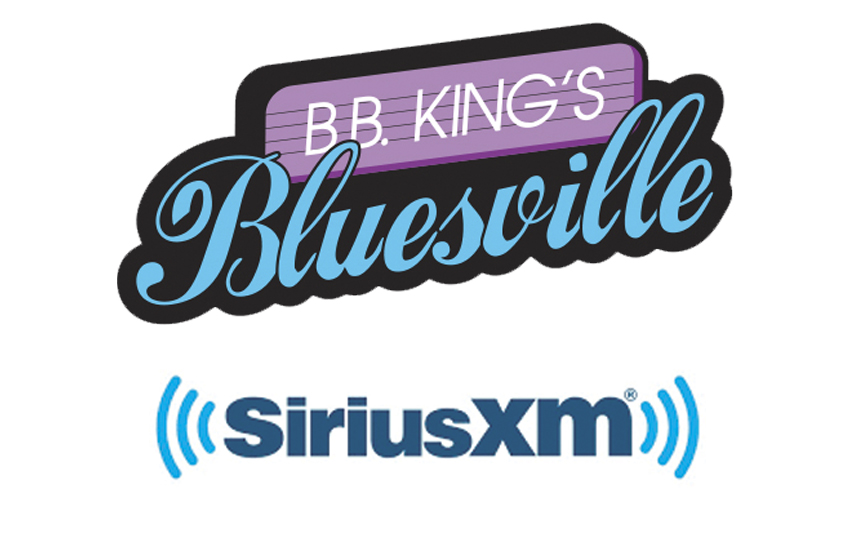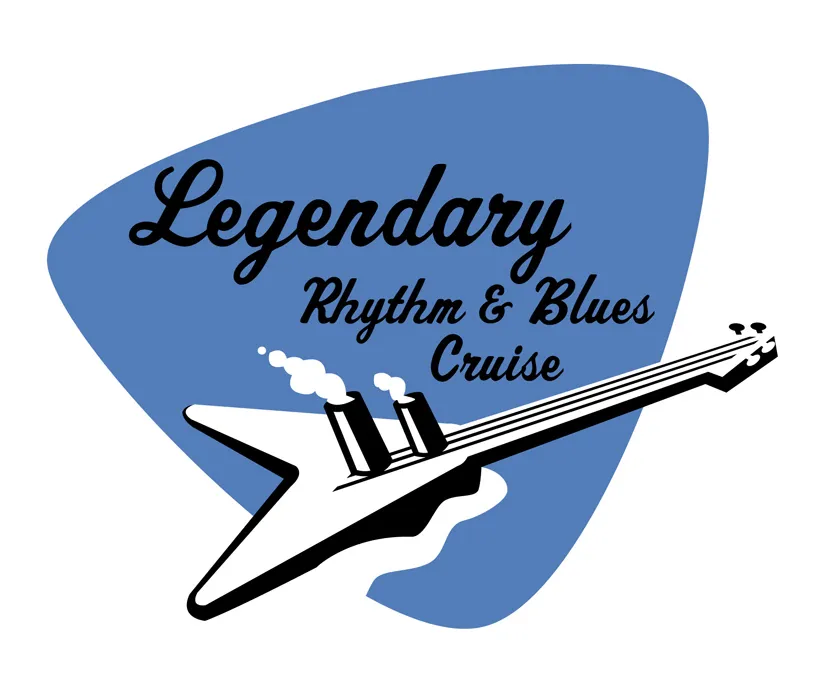Blues Society Resources
Our Mission is to preserve blues heritage, celebrate blues recording and performance, expand worldwide awareness of the blues, and ensure the future of the uniquely American art form.
What is a Blues Society?
As part of our mission, The Blues Foundation endorses the celebration of blues preservation, education, and outreach in individual communities via local Blues Societies. These organizations are independent organizations with their own leadership, by-laws, mission statements, membership, and events. The ultimate goal of any Blues Society is to develop a vibrant blues community at the local level, whether via blues performances and jams, Blues in the Schools programs, musician health support, after-school educational offerings, film and lectures about blues history, or membership parties and outings. Most Blues Societies have a current website with information about clubs and venues, a blues calendar, membership information, and blues music reviews. Many also create a monthly or bi-monthly newsletter to help keep their constituents informed. Some even host house concerts or produce an annual blues festival to further celebrate the music. Whatever the focus of a Blues Society, part of its outreach is centered on creating a community of friendships for their members via volunteer opportunities and social events that foster camaraderie.
The Blues Foundation offers a membership level specifically for Blues Societies. Being accepted by The Blues Foundation as an Affiliated Blues Society provides an additional level of endorsement that confirms legitimacy in the world-wide blues community.
Our staff is available to consult on an individual basis, providing guidance when needed and where appropriate, with the goal of encouraging independent leadership that can nurture and sustain the local affiliate organization. Additionally, The Blues Foundation is committed to sharing educational opportunities for Blues Societies through our own event programming, regularly offering music and educational content for exclusive use by Affiliated memberships.We are available to help you make connections within the blues world to grow your own brand and, by way of this web page, will be offering unique tools to provide you tangible benefits to help build your membership.
With approximately 180 Affiliated Blues Societies around the world, joining The Blues Foundation immediately makes you a part of the international blues community. Of special note, Affiliates of The Blues Foundation have exclusive rights to conduct a local Blues challenge event and send winning acts to compete in Memphis at the International Blues Challenge (IBC) each year. The benefits of running a local IBC challenge are considerable. Being eligible to participate in the biggest blues competition of the year helps develop and promote local blues talent, and demonstrates to funding organizations, and to the general public, the outstanding work the local Affiliate is doing to honor the music, often resulting in greater recognition as well as membership growth.
For additional questions, please contact The Blues Foundation President and CEO Kimberly Horton at kimberly@blues.org.
Create a Blues Society
Outlined below is an overview of the first steps to be taken to create an affiliated blues society in your community.
Getting Started:
Call an organizational meeting to determine who in your community is willing to volunteer time and energy into getting the organization formed.
Look for individuals with some of the following skillsets: legal, accounting, grant writing, social media and website development, local blues DJs, recognizable blues personnel, membership coordinators, merchandiser, graphic designers, etc.
- Determine Your Mission
- Determine Your Leadership Structure
- Determine Your Membership Structure
- Create Your By-Laws
- Seek Not-For-Profit Status
- Acquire domain name, develop a website, establish a social media presence
- Develop relationships with clubs and bands, connect the venues with the artists
- Merchandise – do’s & don’ts
- Your society logo –
- Festival – pros & cons
- International Blues Challenge (IBC)
- Blues In The Schools (BITS)
- HART Fund – Musician Assistance
- Generation Blues (Youth Scholarship Grants)
- Festival
- Society Sponsored Events and Fundraisers
Legal Matters:
This section is intended to be a general guide to some of the legal matters that affect or govern how a U.S. Blues Society is governed. The Blues Foundation cannot provide you with specific legal advice and this article is not intended to provide legal advice. Each State has different laws and regulations governing non-profit corporations. The federal income tax code contains detailed provisions concerning the formation and operation of tax-exempt organizations. We strongly recommend that you consult with a lawyer licensed to practice law in your State to find out your State’s requirements and to ensure that you comply with your local rules and regulations as you go through the legal processes.
The first legal step in forming a non-profit corporation is to file Articles of Incorporation through your State’s Secretary of State or similar State subdivision. Each State has different requirements for the Articles of Incorporation. Your State’s Secretary of State should have on-line instructions to guide you in preparing and filing your Articles of Incorporation. Many States have simple, on-line filing processes.
Due to the number of countries outside the U.S. with affiliate members of The Blues Foundation, it is not possible to cover all of the legal issues in those jurisdictions. However, the Foundation strongly encourages international affiliates to register as non-profit corporations in accordance with their local laws or regulations.
From a tax standpoint, the Internal Revenue Service requires that your Articles of Incorporation contain provisions which limit the society’s purposes to exempt purposes (charitable, scientific, educational) as set forth in the Tax Code and that does not expressly empower it to engage, other than as an insubstantial part of its activities, in activities that do not further those purposes. In addition, an organization’s assets must be permanently dedicated to an exempt purpose. To establish that an organization’s assets will be permanently dedicated to an exempt purpose, the organizing document should contain a provision ensuring their distribution for an exempt purpose if the organization dissolves.
To comply with these requirements, the IRS has provided the following sample provisions for your Articles of Incorporation:
The corporation is organized exclusively for charitable, religious, educational, and scientific purposes, including, for such purposes, the making of distributions to organizations that qualify as exempt organizations under section 501(c)(3) of the Internal Revenue Code, or the corresponding section of any future federal tax code.
No part of the net earnings of the corporation shall inure to the benefit of, or be distributable to its members, trustees, officers, or other private persons, except that the corporation shall be authorized and empowered to pay reasonable compensation for services rendered and to make payments and distributions in furtherance of the purposes set forth in Article Third hereof. No substantial part of the activities of the corporation shall be the carrying on of propaganda, or otherwise attempting to influence legislation, and the corporation shall not participate in, or intervene in (including the publishing or distribution of statements) any political campaign on behalf of or in opposition to any candidate for public office. Notwithstanding any other provision of these articles, the corporation shall not carry on any other activities not permitted to be carried on (a) by a corporation exempt from federal income tax under section 501(c)(3) of the Internal Revenue Code, or the corresponding section of any future federal tax code, or (b) by a corporation, contributions to which are deductible under section 170(c)(2) of the Internal Revenue Code, or the corresponding section of any future federal tax code
Upon the dissolution of the corporation, assets shall be distributed for one or more exempt purposes within the meaning of section 501(c)(3) of the Internal Revenue Code, or the corresponding section of any future federal tax code, or shall be distributed to the federal government, or to a state or local government, for a public purpose. Any such assets not so disposed of shall be disposed of by a Court of Competent Jurisdiction of the county in which the principal office of the corporation is then located, exclusively for such purposes or to such organization or organizations, as said Court shall determine, which are organized and operated exclusively for such purposes.
It is strongly recommended that your Articles of Incorporation use the language suggested by the IRS. Failure to follow these guidelines may result in the denial of your application for non-profit status.
Most States require that you file an Annual Report which renews and updates your organization’s corporate status. You should determine what your State’s requirements are and follow them to ensure that your Blues Society maintains its legal corporation status.
Your By-Laws are the document that governs the structure of your Blues Society and how it will be operated. By-Laws typically include your mission statement, a definition of classes of membership, provisions concerning the election of officers and directors, provisions concerning meetings and voting by members, officers and directors, duties and powers of officers and directors, and provisions concerning financial matters. It is also a good idea to include anti-discrimination, youth protection, and conflict of interest provisions.
There are many ways to structure a Blues Society. At your organizational meeting, you should discuss and decide the details of how your society will be operated, and then adopt By-Laws which incorporate your decisions. It is a good idea to review sample By-Laws from other Blues Societies to learn about the matters to be considered and to get topics for discussion and decision. Many existing Blues Societies post their By-Laws on their web pages. If you do an internet search for “blues society by-laws”, the search will provide many examples of other societies’ By-Laws. It is strongly recommended that you use other societies’ By-Laws as examples and for talking points for your organizational meeting. It is unwise to copy other societies’ By-Laws without making sure that they meet your particular goals and your particular State’s requirements.
The most common voting structure for a Blues Society is one where the members elect a Board of Directors and Officers. This template was provided by one of our Colorado Affiliates and can provide you with a basic template for such a structure[1]:
Another common structure is where the members elect a Board of Directors, and the Directors then appoint Officers from those elected. The template can easily be modified to provide that the Directors will appoint Officers from the Board after the Directors are elected.
A less common structure is where the existing Board of Directors appoint their successors or appoint new Directors, without a vote by the general membership. And, there are many hybrid structures in between. Because the By-Laws are a legal document that provides for the governance of your Blues Society, it is important to prepare By-Laws that meet your goals and that comply with your State’s particular requirements. Those matters should be carefully considered at your organizational meeting and incorporated into the By-Laws your society adopts. Again, we do not recommend that you copy the provided template, or any other society’s By-Laws, without making sure that they meet your goals and comply with your State’s legal requirements.
Finally, the By-Laws should also contain the language required by the IRS for inclusion in your Articles of Organization.
[1]Again, you should use this template for a basic format only and not adopt it verbatim without making sure it meets both your particular goals and your particular State’s legal requirements.
An Employer Identification Number (“EIN”) is the equivalent of a Social Security Number for an individual. It is required by the IRS prior to filing for non-profit status, and it is used for your organizations’ federal and state tax returns if they are required. The proper form is IRS form SS-4. You can apply for the EIN online if you meet the requirements.
The next step in the process is to file the application with the IRS for determination of non-profit status. The IRS recognizes several types of non-profit organizations. The Blues Foundation requires that U.S. Affiliates be granted an exemption by the IRS under Section 501(c)(3) of the tax code, so this discussion is limited to that status. An exemption under Section 501(c)(3) can allow your society to receive tax-deductible contributions and to have some or all of its income be exempt from federal income taxation. The IRS web site contains all of the information you need to determine if your Blues Society is eligible for 501(c)(3) status, how to apply for 501(c)(3) status, the requirements for maintaining your 501(c)(3) status, and your annual reporting requirements. The tax code is complex and it can be overwhelming, but the IRS has published simple guidelines describing the requirements, application process and compliance matters for 501(c)(3) organizations. A good starting point is here:
The IRS has adopted a streamlined, online application process that many new Blues Societies, and some existing societies, can use, called form 1023-EZ. The application and instructions are here:
You should read the instructions and fill out the eligibility worksheet. If you can use Form 1023-EZ, it will greatly simplify your application process and you will receive a decision (“Determination Letter”) in a short time. If your organization is not eligible to use this streamlined process, it will need to submit Form 1023. The form and instructions are here:
After your application is submitted, the IRS will review it, and if it determines that your Blues Society is eligible for 501(c)(3) status, it will send you a “Determination Letter”.
Many States require that you register your Blues Society with the State as a charitable organization, and some require annual reporting or returns. You should determine your particular State’s requirements and make sure you comply with any particular requirements of your State.
Your State or local government may require licensing for certain activities, such as the sale of merchandise, the sale of alcoholic beverages, and the conduct of events such as festivals. Many States and local governments have requirements concerning the collection of sales tax on merchandise sales, and perhaps on event tickets, and many also have laws that exempt non-profits from the payment of sales tax. You should determine if your particular State and/or local government have any such requirements and make sure your activities are in compliance with them.
If your Blues Society intends to conduct raffles or other games of chance, your State may have licensing requirements for those activities. If you plan to conduct any such activities, you should make sure you are following your State’s regulations concerning those activities.
After you have received the Determination Letter granting your Blues Society status as a charitable organization under 501(c)(3), you have a continuing obligation to comply with the requirements of the tax code concerning exempt organizations. Those requirements include annual reporting by the filing of a tax return for your Society. The type of return is largely depended upon your societies’ annual income. Most societies file form 990-N, which is a simple form that is filed electronically. Societies with more income, or income which is not related to an exempt purpose, file one of the other returns. Failure to file a required return can result in the termination of your societies’ tax-exempt status.
Another continuing obligation is to make sure your Blues Society complies with the IRS regulations concerning the payment of expenses, the taxation of income and the deductibility of contributions by non-profit organizations. A discussion of those regulations is beyond the scope of this article. The IRS web site contains answers to frequently asked questions and other guidance concerning compliance matters.
Your particular State may also have requirements for reporting, tax returns, etc. You should find out your particular State’s requirements and make sure that you comply with them.
These Because these legal and tax matters can be complex, The Blues Foundation recommends that you enlist the assistance of a local legal or tax professional to guide you in the filing of your annual returns and to answer and assist with tax compliance matters.
Generation Blues Education & Blues In The Schools
Many Blues Foundation Affiliates have prioritized nurturing the next generation of blues fans through Blues in the Schools (BITS) programming. These programs often provide hands-on musical experiences but may also educate youngsters about blues history.
The Blues Foundation will now support your efforts by offering a limited number of competitive grants to Affiliate organizations to help fund their BITS programming through our Generation Blues Education Fund. Seed grants will go to Affiliates whose blues education programs underscore the contemporary relevance of blues music, stimulate intellectual advancement, and encourage cultural understanding.
To apply for a Generation Blues Education Grant, please have your Affiliate President, or someone from leadership,
contact kimberly@blues.org







